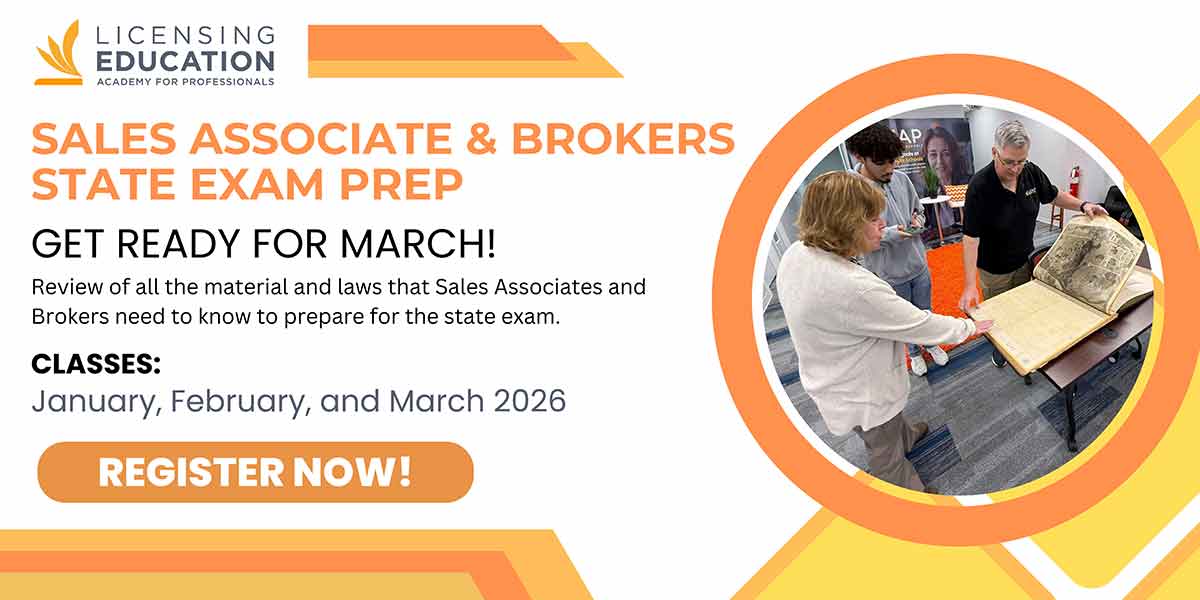Navigating the world of real estate broker jobs can be a thrilling journey. A path filled with opportunities, challenges, and rewards lies ahead.
In this bustling industry, success is often a result of knowledge, skills, and the right strategies. Whether you’re a newcomer or an experienced professional, there’s always room for growth.
This guide aims to offer you valuable insights and practical tips for succeeding in real estate broker jobs. We will look at various aspects of the industry. This includes studying the market in Orlando, FL. We will discuss how technology can benefit your business.
We’ll compare the roles of residential and commercial real estate brokers. We will also discuss the career opportunities available for real estate broker assistants. Plus, we’ll highlight how resources like the LEAP Academy can contribute to your professional development.
So, are you ready to enhance your career in real estate brokerage? Let’s dive in and uncover the top tips for success in this dynamic field.
Understanding the Real Estate Broker Landscape in Orlando, FL
Orlando, FL, is a vibrant real estate market. A city that offers a diverse range of opportunities for real estate brokers.
The city’s robust economy and growing population make it a hot spot for real estate activities. From residential to commercial properties, the demand is high and the market is thriving.
As a real estate broker in Orlando, understanding the local market landscape is crucial. Knowing the neighborhoods, the property values, and the trends is important.
Here are some key aspects to consider:
- The most popular neighborhoods and their unique selling points
- The average property prices and rental rates
- The demand for different types of properties (e.g., single-family homes, condos, commercial spaces)
- The impact of tourism on the real estate market
- The future development plans and their potential impact on property values
By staying informed about these factors, you can provide valuable advice to your clients and make informed decisions.
Licensing and Education: Starting Your Real Estate Broker Career
Starting a career in real estate brokerage requires proper licensing. In Florida, this involves completing a pre-licensing course, passing the state exam, and meeting other requirements.
The pre-licensing course covers essential topics. These include real estate law, property management, real estate investments, and more. It equips you with the knowledge needed to pass the state exam and start your career.
Passing the state exam is a crucial step. It tests your understanding of the course material and your readiness to practice as a real estate broker.
Here are the steps to get a real estate broker license in Florida:
- Complete a 72-hour pre-licensing course from a state-approved school
- Pass the state exam
- Submit an application and fee to the Florida Department of Business and Professional Regulation
- Pass a background check
Remember, getting licensed is just the beginning. Continuous learning and professional development are key to success in this field.
Residential vs. Commercial Real Estate Broker Jobs: What’s the Difference?
Residential and commercial real estate broker jobs have distinct differences. Understanding these can help you decide which path suits you best.
Residential real estate involves properties for personal use. These include single-family homes, condos, and townhouses. As a residential broker, you’ll help clients buy, sell, or rent these properties.
Commercial real estate, on the other hand, involves business properties. These include office buildings, retail spaces, and industrial properties. Commercial brokers deal with businesses, investors, and developers.
Here are some key differences between residential and commercial real estate broker jobs:
- Clientele: Residential brokers work with individuals and families, while commercial brokers work with businesses and investors.
- Property types: Residential properties include homes and apartments, while commercial properties include office buildings, retail spaces, and more.
- Transactions: Commercial transactions are often larger and more complex than residential ones.
- Market: Commercial real estate usually provides higher income potential than residential real estate because of bigger and more intricate transactions. This is because commercial properties tend to generate more revenue. Additionally, the deals involved in commercial real estate are often more lucrative.
Choosing between residential and commercial real estate depends on your interests, skills, and career goals. Both offer unique challenges and rewards.
The Role of a Real Estate Broker Assistant
A real estate broker assistant plays a crucial role in a brokerage firm. They provide administrative support, handle client communication, and manage paperwork. This role is often a stepping stone to becoming a full-fledged broker.
Broker assistants perform various tasks. These include scheduling appointments, preparing documents, and maintaining databases. They also assist with marketing efforts, such as creating listing presentations and managing social media accounts.
Starting as a broker assistant can provide valuable industry experience. A great way to learn the ropes, build a network, and gain a deeper understanding of the real estate market.
Leveraging LEAP Academy for Professional Growth
The LEAP Academy is a valuable resource for those in real estate broker jobs. It offers a range of courses and workshops designed to enhance professional skills and knowledge. From analyzing the market to negotiation tactics, the academy covers key aspects of the real estate business.
Participating in LEAP Academy programs can significantly boost your career. It can help you stay updated with industry trends, learn new strategies, and gain a competitive edge.
Remember, continuous learning is crucial in the ever-evolving real estate industry. Make the most of resources like the LEAP Academy to ensure your professional growth.
Networking: Building Relationships for Long-Term Success
In real estate broker jobs, networking is key. Building strong relationships with clients, fellow brokers, and industry professionals can open doors to new opportunities. About more than just making contacts, fostering long-term connections is essential.
Here are a few networking strategies to consider:
- Attend industry events and conferences.
- Join local real estate associations.
- Leverage social media to connect with potential clients and partners.
Remember, networking is a two-way street. Not just about what others can do for you, but also about what you can do for them. Mutual benefit is the cornerstone of successful networking.
Lead Generation Strategies That Work
Lead generation is a critical aspect of real estate broker jobs. About attracting potential clients and converting them into actual clients. But how do you generate leads effectively?
Here are a few strategies that work:
- Utilize online marketing tools like SEO and social media advertising.
- Host open houses and community events.
- Develop a referral system to encourage satisfied clients to recommend you to others.
Remember, quality is more important than quantity in leads. Having a few highly interested potential clients is better than having a large number of lukewarm leads. Tailor your approach to attract the right audience for your listings.
Mastering Market Analysis for Successful Transactions
Analyzing the market is a key skill for real estate brokers. It involves studying the real estate market to understand trends and make informed decisions. This knowledge can help you price properties correctly and advise clients effectively.
Stay informed about local real estate market trends and news. Understand the impact of economic factors on the real estate market. Use data and analytics to make informed decisions.
Remember, a well-informed broker is a successful broker. Analyzing the market can help you stand out from competitors and close deals more effectively.
Client Management and Negotiation Skills
Managing client expectations and maintaining long-term relationships is crucial in real estate broker jobs. You need to build trust and credibility with your clients. This involves effective communication, transparency, and honesty in all dealings.
Negotiation is another key skill. It can help you close deals more effectively. Here are some negotiation tactics:
- Understand the needs and motivations of all parties involved.
- Be prepared to compromise, but also know your limits.
- Use facts and data to support your arguments.
- Maintain a professional demeanor, even in challenging situations.
Remember, your success as a real estate broker largely depends on your ability to manage clients and negotiate deals. So, hone these skills and use them to your advantage.
Embracing Technology and Online Marketing
The impact of technology on the real estate industry is undeniable. It has revolutionized the way brokers do business. From virtual tours to digital tools for property showings, technology has made things easier and more efficient.
A strong online presence is also vital for real estate brokers. It helps attract and engage potential clients. Here are some strategies for using social media and other online platforms:
- Create a well-designed and user-friendly website.
- Use social media to share listings and engage with your audience.
- Leverage real estate analytics to target the right audience for your listings.
- Utilize a customer relationship management (CRM) system to manage your clients and leads.
Remember, embracing technology and online marketing is not an option but a necessity in today’s digital age. So, make sure you’re up to date with the latest tools and trends.
Specializing in a Niche: Why It Matters
In the vast world of real estate, finding your niche can be a game-changer. It allows you to focus on a specific market segment and become an expert in that area. This could be anything from luxury homes to eco-friendly properties.
Specializing in a niche also helps you stand out from the competition. It gives you a unique selling proposition that can attract a specific group of clients. Focusing on commercial real estate can make businesses more likely to choose you for office spaces instead of a generalist. This is because your expertise in commercial real estate makes you a more attractive option for these companies.
By focusing on this niche market, you can stand out from competitors who offer a wider range of services. This specialization can help you attract more clients and grow your business in the long run.
So, consider finding a niche that aligns with your interests and expertise. It could be the key to your success in real estate brokerage.
Continuing Education and Staying Current with Industry Trends
In the ever-evolving real estate industry, staying current is crucial. This means keeping up with the latest market trends, legal changes, and technological advancements. Not just about maintaining your license, but also about enhancing your skills and knowledge.
Continuing education can take various forms. It could be attending workshops, enrolling in online courses, or participating in webinars. These platforms provide valuable insights into the industry’s latest trends and best practices.
- Attend real estate conferences and workshops
- Enroll in online courses related to real estate
- Participate in webinars and online forums
- Read industry publications and reports
Remember, the more you learn, the more you can offer to your clients. So, make continuing education a priority in your real estate broker career.
Work-Life Balance: Tips for Real Estate Brokers
Being a real estate broker can be demanding. It often involves long hours, weekend work, and constant availability. However, maintaining a healthy work-life balance is essential for long-term success and personal well-being.
Firstly, effective time management is key. Prioritize tasks, delegate when possible, and make sure to set aside time for relaxation and personal activities. Secondly, don’t forget to take care of your health. Regular exercise, a balanced diet, and adequate sleep can significantly boost your productivity.
Lastly, remember that it’s okay to say no sometimes. Overcommitting can lead to stress and burnout. So, set boundaries and stick to them.
Conclusion: Building a Successful Career in Real Estate Brokerage
In conclusion, success in real estate broker jobs is not just about selling properties. Building relationships, understanding the market, and continuously improving your skills are essential. It is about being adaptable, resilient, and always ready to learn.
Remember, every broker’s journey is unique. What works for one may not work for another. So, don’t be afraid to carve your own path and define your own version of success.
Finally, never lose sight of why you chose this career. Keep that passion alive, and it will fuel your drive towards success.






